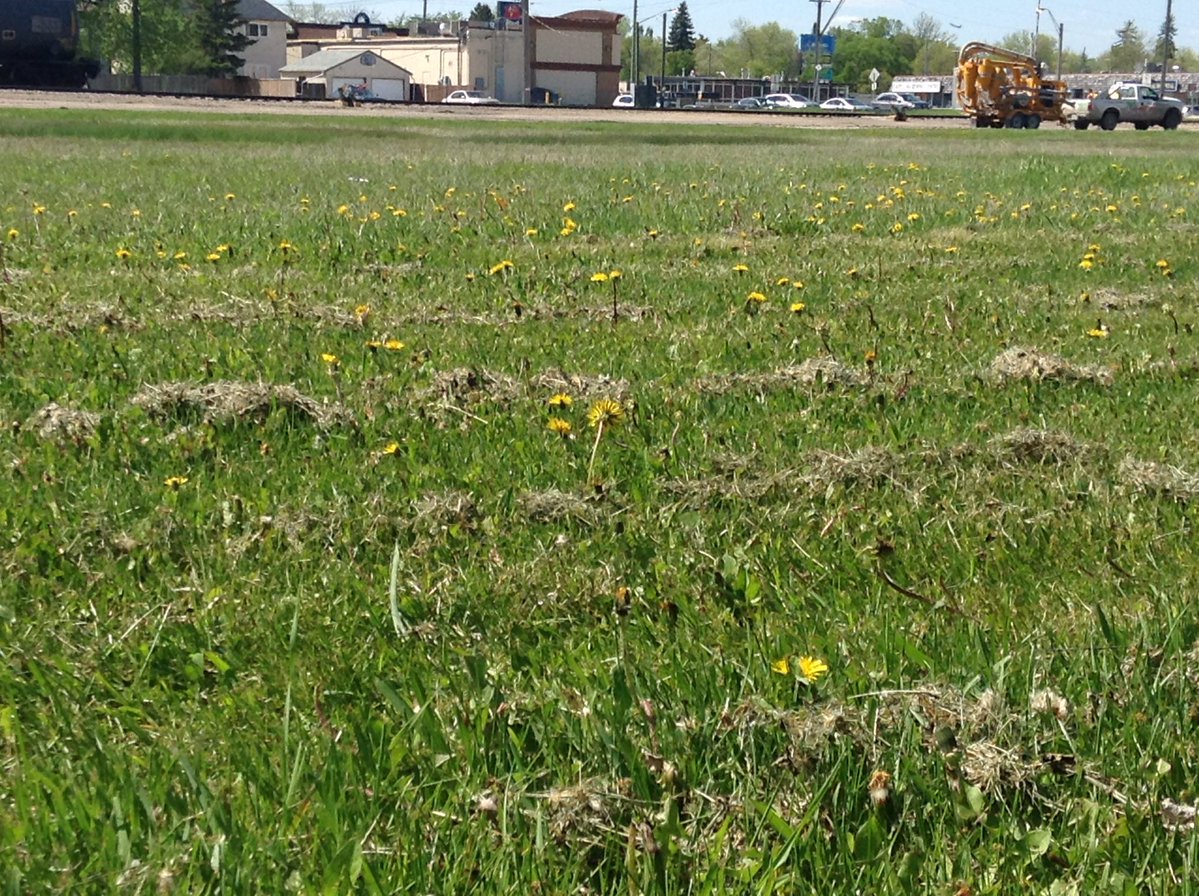Getting all the weeds out of your lawn is hard enough.

For the third straight summer, Manitobans have had to do so under the umbrella of the province’s cosmetic pesticide ban.
When the NDP enacted the ban in 2014, the Progressive Conservatives did not support it.
Now, the government says it’s still in the process of reviewing the legislation.
“The department is considering revisions to the non-essential pesticide use legislation to provide clarity respecting pesticide sale and informed use,” a government spokesperson told Global News. “The department consulted with Manitobans on the province’s existing Non-Essential Pesticide Use legislation to better understand their experiences. We have heard what people had to say and are seeking ways to improve the legislation.”
That means people will have to continue making due with the banned products (hoping not to get caught) or by using organic treatments that can cost ten times as much. Some are just giving up.
“We’re seeing that all over. You can see it yourself driving around the neighbourhoods,” observed David Hinton, president of Weed Man Winnipeg. “A lot of people’s lawns are just being taken over by dandelions because they don’t want to spend the money or they just don’t know what the answer is.”
Hinton says the best way to ward off dandelions is to have a thick and healthy lawn.
Jayne Geisel thinks the problem goes beyond the pesticide ban.
“As municipal budgets have decreased for things like weed control, there’s always going to be weeds growing in more managed areas because the risk of invasion is always there,” said Geisel, a horticulture instructor at Red River College. “There’s always dandelions on railway tracks, large green spaces, and as long as those are there and go to seed, those seeds are available to blow into our lawns.”
If you get rid of all your weeds, beekeeper Chris Kirouac wants you to plant some alternative plants for pollinators.
“Dandelions represent one of the first large sources of nectar for wild pollinators and managed bee colonies in the springtime,” Kirouac said. “You can plant beneficial plants that have nectar sources that aren’t chemically treated.”
- Gas prices surge in some parts of Canada. What’s causing pain at the pumps?
- ‘She gets to be 10’: Ontario child’s heart donated to girl the same age
- Buzz kill? Gen Z less interested in coffee than older Canadians, survey shows
- Indigo nears privatization but experts warn turnaround won’t be ‘quick fix’







Comments